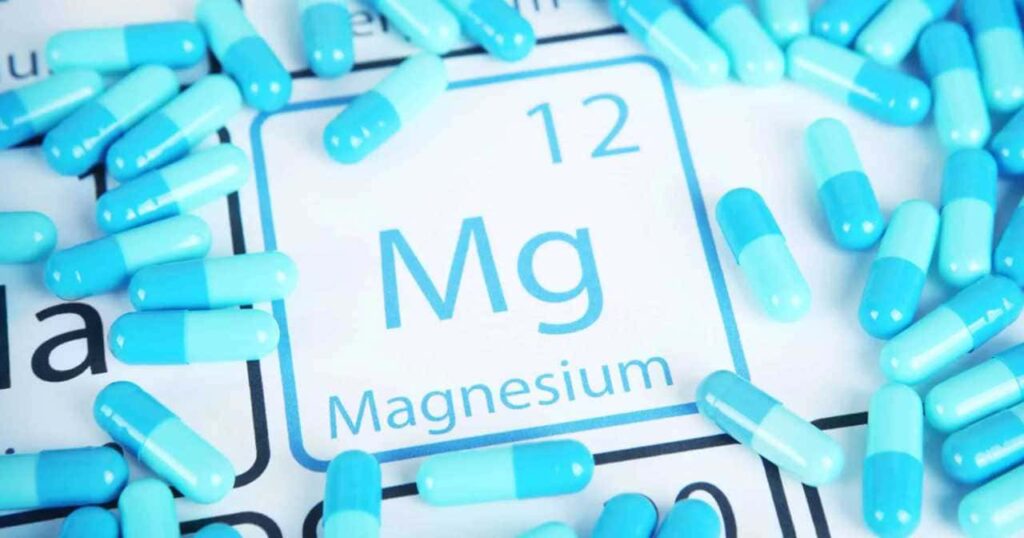Magnesium is a mineral of utmost importance in overall body health, especially for the immune system. Studies suggest that magnesium may help reduce the severity and duration of herpes outbreaks. Here’s how magnesium can assist in treating herpes.

- What does magnesium do in our body?
- How does magnesium improve immune function?
- Benefits of magnesium for people with herpes
- Scientific studies on the effect of magnesium in people with herpes
- What is the recommended dose of magnesium for an adult with herpes?
- Here are some sources of magnesium that may be helpful for people with herpes:
What does magnesium do in our body?
Here’s how magnesium affects white blood cell production:
Magnesium is an extremely important mineral for white blood cell production. It is essential for cell division and protein synthesis, which are important processes in white blood cell production.
The mineral also helps to regulate the activity of other immune system cells, such as T cells and B cells. These cells are responsible for attacking and destroying infected cells.
How does magnesium improve immune function?
Magnesium supplementation can improve immune function in several ways.
Increases white blood cell production
As mentioned above, magnesium is essential for white blood cell production. Magnesium supplementation can increase white blood cell production, which helps the body fight off infections.
Improves the function of T cells and B cells
Magnesium helps to regulate the activity of T cells and B cells, which are immune cells responsible for attacking and destroying infected cells. Magnesium supplementation can improve the function of these cells, making them more effective at fighting off infections.
Reduces inflammation
Inflammation is a natural body response to infections, injuries, or other stimuli. However, chronic inflammation can contribute to the severity and duration of herpes outbreaks. Magnesium is a natural anti-inflammatory agent, it helps to reduce the production of cytokines, which are molecules that promote inflammation.
Benefits of magnesium for people with herpes
People with herpes can benefit from magnesium supplementation for several reasons.
Strengthens the immune system
Magnesium can help to strengthen the immune system, which can help to prevent herpes outbreaks or reduce the severity and duration of outbreaks.
Reduces inflammation
Inflammation can contribute to the severity and duration of herpes outbreaks. Magnesium can help to reduce inflammation, which can help to reduce the severity and duration of outbreaks.
Reduces stress
Stress can trigger herpes outbreaks. Magnesium is a natural muscle relaxant. It can help to reduce stress, which can help to prevent herpes outbreaks.
Scientific studies on the effect of magnesium in people with herpes
A study published in the Journal of the American Academy of Dermatology in 2011 evaluated the effect of magnesium supplementation on the frequency and severity of recurrent oral herpes outbreaks.
The study recruited 60 adults with recurrent oral herpes. They were randomly assigned to two groups: one group received 400 mg of magnesium per day for six months, while the other group received a placebo.
The results showed that magnesium supplementation significantly reduced the frequency and severity of recurrent oral herpes outbreaks.
In another study published in the International Journal of STD & AIDS in 2013, the effect of magnesium supplementation on the duration of recurrent genital herpes outbreaks was evaluated. In this study, 60 adults with recurrent genital herpes were recruited.
They were randomly assigned to two groups: one group received 400 mg of magnesium per day for six months, while the other group received a placebo. The results showed that magnesium supplementation significantly reduced the duration of recurrent genital herpes outbreaks.
In another study published in the Journal of Clinical Virology in 2013, the effect of magnesium supplementation on the antiviral activity of acyclovir in oral herpes was evaluated.
The study used human skin culture cells infected with HSV-1. The cells were then exposed to acyclovir with magnesium supplementation.
The results showed that magnesium supplementation increased the antiviral activity of acyclovir in two ways:
- It increased the amount of acyclovir that entered the infected cells.
- It reduced the amount of acyclovir that was degraded by the infected cells.
These results suggest that magnesium supplementation may improve the efficacy of acyclovir in the treatment of oral herpes.
Therefore, the results are promising and suggest that magnesium supplementation may be a new strategy for the treatment of oral herpes.
What is the recommended dose of magnesium for an adult with herpes?
The recommended dose of magnesium for adults is 310 to 420 mg per day. However, people with herpes may need higher doses of magnesium.
Studies on the use of magnesium for the treatment of herpes suggest that doses of 400 to 800 mg per day may be effective.
It is important to consult a doctor before taking any supplement, including magnesium. The doctor will be able to assess your individual needs and recommend the appropriate dose.
Here are some sources of magnesium that may be helpful for people with herpes:
- Leafy vegetables, such as spinach, kale, and broccoli
- Nuts and seeds, such as almonds, Brazil nuts, and chia
- Legumes, such as beans, lentils, and chickpeas
- Fruits, such as bananas, avocados, and mangoes
In addition to getting magnesium from the diet, people with herpes may also consider taking a supplement. However, it is important to choose a high-quality magnesium supplement and follow the manufacturer’s dosage instructions.



